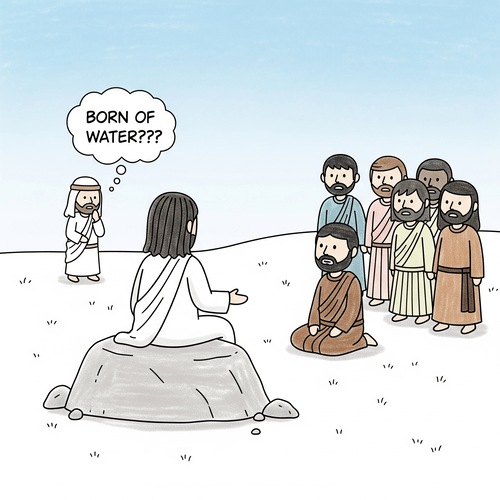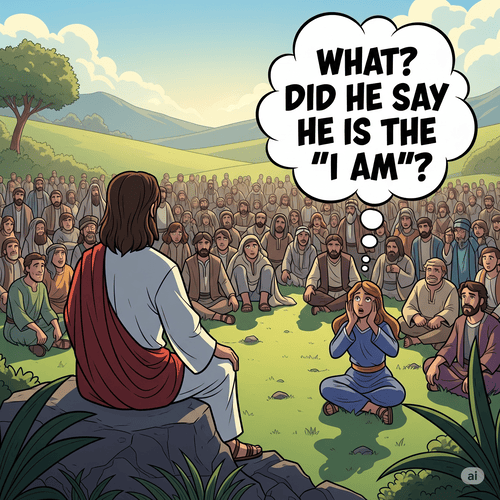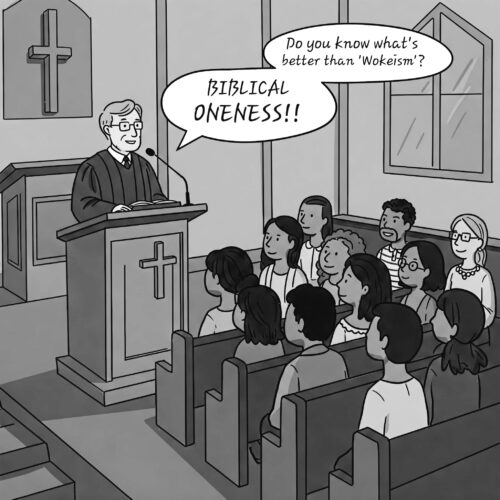How Jehovah’s Witnesses’ Key Teachings Differ from Biblical Doctrine
Though they call themselves a Christian denomination, Jehovah’s Witnesses (JWs) hold several beliefs that diverge from traditional biblical interpretations and mainstream Christian doctrines. Understanding these differences is crucial for those seeking to evaluate the JW faith. Consider with us how Jehovah’s Witnesses’ key teachings differ from biblical doctrine:
- Salvation by Works and Adherence to the Watchtower Society: Contrary to the biblical doctrine of salvation by grace through faith in Jesus Christ alone, JWs emphasize the necessity of works, including door-to-door evangelism and adherence to the teachings of the Watchtower Bible and Tract Society, for salvation.
- Denial of Christ’s Divinity and His Bodily Resurrection: While Christians affirm the deity of Jesus Christ, JWs believe He is a lesser divine being and not fully God. They reject the biblical teaching that Jesus is the incarnation of God and the second person of the Trinity. Instead, they teach Jesus is God’s first-born son, that
JWs also deny the bodily resurrection of Jesus Christ as described in the Gospels. Instead, they teach He was resurrected as a spirit creature.
Here’s more on how Jehovah’s Witnesses’ key teachings differ from biblical doctrine:
- Rejection of the Trinity: Unlike most Christian churches, JWs reject the doctrine of the Holy Trinity, denying the co-equality and co-eternality of God the Father, the Son (Jesus Christ), and the Holy Spirit. They view Jesus as a created being, not co-equal or co-eternal with God the Father. They deny personhood to the Holy Spirit and refer to Him as ‘it’ rather than ‘Him’, and as an impersonal force of God.
- Limited Atonement: While Christians hold that Christ’s atonement is universal and available to all who believe, JWs teach that only a select group of 144,000 “anointed ones” will receive heavenly salvation.
- Rejection of Hell as Eternal Punishment: JWs reject the biblical doctrine of eternal conscious punishment in hell for unbelievers. Instead, they hold to the belief of annihilationism, which teaches the wicked will simply cease to exist.
- Absolute Authority of the Watchtower Society: JWs are required to submit to the authority of the Watchtower Bible and Tract Society, which they believe is the sole channel through which God communicates with humanity.
- Failed Predictions of the End Times: Throughout their history, JWs have made numerous failed predictions regarding the timing of the end of the world and the Second Coming of Christ, undermining their credibility as interpreters of biblical prophecy.
- Prohibition of Blood Transfusions: Based on their interpretation of certain biblical passages, JWs refuse to accept blood transfusions, even in life-threatening situations, posing significant health risks.
- Discouragement of Higher Education: The JW organization actively discourages its members from pursuing higher education, viewing it as a distraction from their primary mission of evangelism and spreading JW teachings.
These key doctrinal differences highlight the significant divergences between JW teachings and widely accepted biblical interpretations held by the majority of Christian denominations.
Related Reads
Editor's Pick

Rethinking Sickle Cell Anaemia: A Case for Intelligent Design
Sickle cell anaemia presents what many consider evolution’s strongest card—a genetic condition that causes suffering yet provides protection against malaria. [...]

‘Bad’ Design: Flaw in Nature Or Flaw in Our Perspective?
When the Eiffel Tower was first proposed, critics called it a monstrous eyesore that would ruin Paris forever. Today, it’s [...]

The Problem of Divine Absence: How Do Believers Cope?
WHEN GOD SEEMS FAR: THE GREAT DISCONNECT Ever wondered why God seemed so close to Joseph in his Egyptian prison, [...]

Is ‘Gay Christian’ a Biblically Acceptable Identity to Have?
THE QUESTION OF IDENTITY IN BIBLICAL PERSPECTIVE The term “gay Christian” has become increasingly common in contemporary religious discourse, representing [...]

What Does ‘Born of Water’ in John 3:5 Mean?
THE REFORMED VIEW VS OTHER INTERPRETATIONS ”Jesus answered, ‘Truly, truly, I say to you, unless one is born of water [...]

The Lordship Salvation Controversy: What’s It All About?
Can someone be truly saved without making Jesus Christ their Lord? The question sits at the heart of one of [...]

1 John 5:6: How Do Water and Blood Reveal Jesus’ True Identity?
"This is he who came by water and blood—Jesus Christ; not by the water only but by the water and [...]

Is Jesus Yahweh? Answering Unitarian Objections
The question of whether Jesus Christ is truly God has divided Christians for centuries. While orthodox Christianity has consistently affirmed [...]

Matthew 3:11: What Is the Baptism of Fire?
When John the Baptist declared, “He will baptise you with the Holy Spirit and fire” (Matthew 3:11), his words carried [...]

From Rock to Stumbling Block: Why Jesus Called Peter Satan
In the span of just six verses (Matthew 16:13-28), Peter goes from receiving the highest praise from Jesus to getting [...]
SUPPORT US:
Feel the Holy Spirit's gentle nudge to partner with us?
Donate Online:
Account Name: TRUTHS TO DIE FOR FOUNDATION
Account Number: 10243565459
Bank IFSC: IDFB0043391
Bank Name: IDFC FIRST BANK






